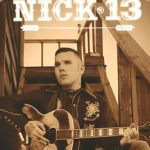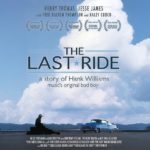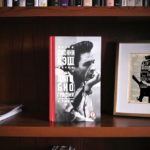Sometimes they come back. A little Corsican sets sail from Elba to bring his Old Guard to ruin. The Ouroboros, imagining himself to be a puppy, grabs his own tail with his teeth. Rotted corpses in remnants of gray uniforms rise from the graves in front of the dilapidated mansion. Two friends, returning to cooperation for the first time in a quarter of a century, saddle a carpet airplane, the “Delorean” of the Thousand and One Nights, woven of music, sadness, irony and apt phrases, ruling it during the youth of the New World. One of this significant duo is Jimbo Matus, the founder of the Last Great Band of the twentieth Century, Squirrel Nut Zippers.
On the twisty path that followed her breakup, Jimbo recorded two of the best Chicago blues albums with Buddy Guy, as well as more than a dozen of his own records. In his early childhood, Jim was nursed by Rosetta, the daughter of the legendary Charlie Patton, and this ruined the guy’s life – he could have worked honestly on a Mississippi barge. Andrew Bird, the second member, is a brilliant violinist raised on jazz and Celtic folklore, graced three albums of the aforementioned Squirrel Nut Zippers with his playing, recorded three more with his own band Andrew Bird’s Bowl Of Fire, however, he achieved fame by accident, having to start performing alone, which speaks not only about Andrew’s skill, but also about the quality of the audience, who ignored such a diamond as “The Swimming Hour”.
Since then, many hours of studio work have passed, Byrd starred in the fourth season of “Fargo”, won a Grammy nomination and ended up exactly where he started: with Jimbo Matus, who once gave Andrew a good kick in the big world. The duo decided to abandon the accompanying line-up in favor of greater authenticity. The name “These 13” is given with an explicit reference to the one-named collection of short stories by William Faulkner, released only once in 1931. Let’s break down this little mix.
Poor Lost Souls is the purest Hank Williams, or rather his ghost, who escaped from the shackles of a lost demo tape and possessed Jimbo Matus. Andrew Burd delivers the authentic violin sound of the era and style with impossible lightness, joyfully. And where are there more poor lost souls than in the City of Angels? Sweet Oblivion is the blues of the Mississippi Delta, slightly modified in the smoke of legalized weeds. It feels strange. As if the abolitionists were hippies…
Encircle My Love is a cowboy bonfire. Baking potatoes, drying scalps, corn coffee. Beat Still My Heart is a minor, deliberately artless waltz by eternal wanderers with the most sincere violin part in the second half. It opens like a flower in the rays of the sun. Only the grass is still cold and dewy. Red Velvet Rope would have been missed at the Grand Ole Opry if not for the unexpected snide bridge.
High John is one of those blues songs that were recorded a century earlier and were included in the Library of Congress. The spirits of the Negroes of the past dance in the shadows. Stonewall (1863) is deep and filled with sad weariness. Confederate General Thomas “Stonewall” Jackson was foolishly shot by his own patrol in 1863, and died of his wound a week later, which was a true tragedy for Southerners. The song is saved from anathema only by the blatant illiteracy of the current overseas deformers.
Bright Sunny South is a short wordless sketch on the accordion. Bell Witch is an anachronism for the time of universal smartphone technology. She’s too warm and full of soul. Witch vocals – Suzanne Hoffs. Dig Up The Hatchet is a folk song that re-entices the youngest Zimmerman. How to go on the warpath with carpentry tools.
Jack O’ Diamonds tells how the pockets of the lyrical hero were emptied during card games. But where one has a loss, the other has a gain. Don’t believe in the harm of excitement, guys, play to your heart’s content, maybe you’ll get lucky and save your trousers. And the music here is so rooted, as if the performers had spent a dozen lives in the foothills of the Appalachians.
Burn The Honky Tonk is a pyromaniac country ballad with mandolin. A hangover, heartache, a bottle of moonshine – a dangerous mixture. Three White Horses And A Golden Chain – six-minute completion. Three white horses for two white guys. An almost piercing, but slightly lazy harmony of two voices framed by philosophical squeaking and thoughtful whistling. Endless musical prairies, and there’s no hurry…
Messrs. Burd and Matus have written and recorded a subtle, lyrical, non-committal album, beautiful with the unassuming beauty of clover and honeydew. Devoid of obvious hits, as planned, full of unobvious advantages. It’s like Tom and Huck are still on that raft, somewhere in the middle of the dormant Mississippi…















